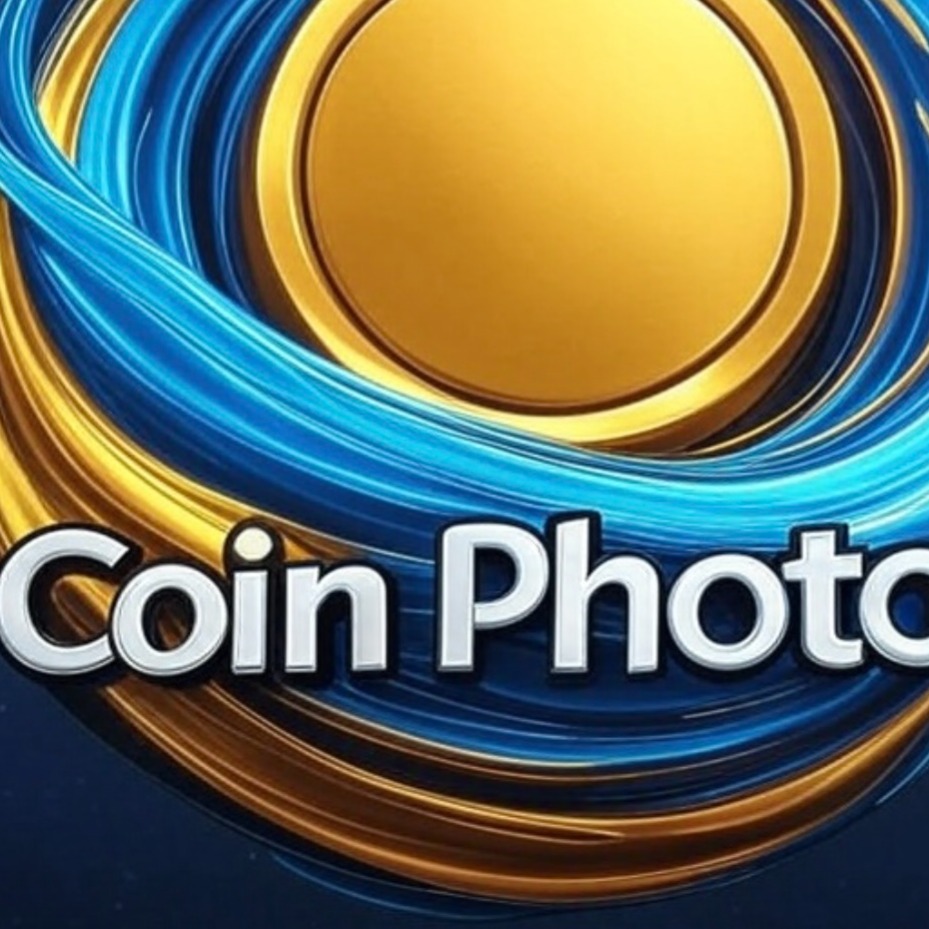Bitget:全球日交易量排名前 4!
BTC 市占率62.57%
Bitget 新幣上架 : Pi Network
BTC/USDT$83618.24 (+1.71%)恐懼與貪婪指數43(恐懼)
山寨季指數:0(比特幣季)
盤前交易幣種PAWS,WCT比特幣現貨 ETF 總淨流量:-$1M(1 天);-$872.6M(7 天)。Bitget 新用戶立享 6,200 USDT 歡迎禮包!立即領取
到 Bitget App 隨時隨地輕鬆交易!立即下載
Bitget:全球日交易量排名前 4!
BTC 市占率62.57%
Bitget 新幣上架 : Pi Network
BTC/USDT$83618.24 (+1.71%)恐懼與貪婪指數43(恐懼)
山寨季指數:0(比特幣季)
盤前交易幣種PAWS,WCT比特幣現貨 ETF 總淨流量:-$1M(1 天);-$872.6M(7 天)。Bitget 新用戶立享 6,200 USDT 歡迎禮包!立即領取
到 Bitget App 隨時隨地輕鬆交易!立即下載
Bitget:全球日交易量排名前 4!
BTC 市占率62.57%
Bitget 新幣上架 : Pi Network
BTC/USDT$83618.24 (+1.71%)恐懼與貪婪指數43(恐懼)
山寨季指數:0(比特幣季)
盤前交易幣種PAWS,WCT比特幣現貨 ETF 總淨流量:-$1M(1 天);-$872.6M(7 天)。Bitget 新用戶立享 6,200 USDT 歡迎禮包!立即領取
到 Bitget App 隨時隨地輕鬆交易!立即下載



Comedian 價格BAN
上架
報價幣種:
TWD
NT$1.250.00%1D
價格
TradingView
市值
Comedian 價格走勢圖(BAN/TWD)
最近更新時間 2025-04-12 09:48:53(UTC+0)
市值:--
完全稀釋市值:--
24 小時交易額:--
24 小時交易額/市值:0.00%
24 小時最高價:NT$1.29
24 小時最低價:NT$1.2
歷史最高價:NT$13.79
歷史最低價:NT$0.3378
流通量:-- BAN
總發行量:
--BAN
流通率:0.00%
最大發行量:
--BAN
以 BTC 計價:1,405.61 BTC
以 ETH 計價:13.83 ETH
以 BTC 市值計價:
--
以 ETH 市值計價:
--
合約:--
您今天對 Comedian 感覺如何?
注意:此資訊僅供參考。
Comedian 的 AI 分析報告
今日加密市場熱點查看報告
今日 Comedian 價格 TWD
今日 Comedian 即時價格為 NT$1.25 TWD,目前市值為 --。過去 24 小時內,Comedian 價格跌幅為 0.00%,24 小時交易量為 NT$0.00。BAN/TWD(Comedian 兌換 TWD)兌換率即時更新。
Comedian 價格歷史(TWD)
過去一年,Comedian 價格上漲了 +269.73%。在此期間,BAN 兌 TWD 的最高價格為 NT$13.79,BAN 兌 TWD 的最低價格為 NT$0.3378。
時間漲跌幅(%) 最低價
最低價 最高價
最高價 
 最低價
最低價 最高價
最高價 
24h0.00%NT$1.2NT$1.29
7d-29.95%NT$0.9481NT$1.79
30d-35.02%NT$0.9481NT$1.99
90d+10.60%NT$0.7669NT$8.41
1y+269.73%NT$0.3378NT$13.79
全部時間+269.73%NT$0.3378(--, 今天 )NT$13.79(--, 今天 )
Comedian 的最高價格是多少?
Comedian 兌換 TWD 的歷史最高價(ATH)為 NT$13.79,發生於 。相較於 Comedian 歷史最高價,目前 Comedian 價格回撤了 90.94%。
Comedian 的最低價格是多少?
Comedian 兌換 TWD 的歷史最低價(ATL)為 NT$0.3378,發生於 。相較於 Comedian 歷史最低價,目前 Comedian 價格上漲了 269.73%。
Comedian 價格預測
BAN 在 2026 的價格是多少?
根據 BAN 的歷史價格表現預測模型,預計 BAN 的價格將在 2026 達到 NT$0.00。
BAN 在 2031 的價格是多少?
2031,BAN 的價格預計將上漲 +16.00%。 到 2031 底,預計 BAN 的價格將達到 NT$0.00,累計投資報酬率為 -100.00%。
常見問題
Comedian 的目前價格是多少?
Comedian 的即時價格為 NT$1.25(BAN/TWD),目前市值為 -- TWD。由於加密貨幣市場全天候不間斷交易,Comedian 的價格經常波動。您可以在 Bitget 上查看 Comedian 的市場價格及其歷史數據。
Comedian 的 24 小時交易量是多少?
在最近 24 小時內,Comedian 的交易量為 --。
Comedian 的歷史最高價是多少?
Comedian 的歷史最高價是 NT$13.79。這個歷史最高價是 Comedian 自推出以來的最高價。
我可以在 Bitget 上購買 Comedian 嗎?
可以,Comedian 目前在 Bitget 的中心化交易平台上可用。如需更詳細的說明,請查看我們很有幫助的 如何購買 comedian 指南。
我可以透過投資 Comedian 獲得穩定的收入嗎?
當然,Bitget 推出了一個 策略交易平台,其提供智能交易策略,可以自動執行您的交易,幫您賺取收益。
我在哪裡能以最低的費用購買 Comedian?
Bitget提供行業領先的交易費用和市場深度,以確保交易者能够從投資中獲利。 您可通過 Bitget 交易所交易。
Comedian 資訊
查看更多
Comedian 行情
Comedian 持幣分布集中度
巨鯨
投資者
散戶
Comedian 地址持有時長分布
長期持幣者
游資
交易者
coinInfo.name(12)即時價格表

全球 Comedian 價格
目前 Comedian 用其他貨幣計價是多少?最近更新時間:2025-04-12 09:48:53(UTC+0)
BAN 兌換 MXN
Mexican Peso
$0.78BAN 兌換 GTQGuatemalan Quetzal
Q0.3BAN 兌換 CLPChilean Peso
$38.03BAN 兌換 UGXUgandan Shilling
Sh141.55BAN 兌換 HNLHonduran Lempira
L1BAN 兌換 ZARSouth African Rand
R0.74BAN 兌換 TNDTunisian Dinar
د.ت0.12BAN 兌換 IQDIraqi Dinar
ع.د50.46BAN 兌換 TWDNew Taiwan Dollar
NT$1.25BAN 兌換 RSDSerbian Dinar
дин.3.98BAN 兌換 DOPDominican Peso
$2.4BAN 兌換 MYRMalaysian Ringgit
RM0.17BAN 兌換 GELGeorgian Lari
₾0.11BAN 兌換 UYUUruguayan Peso
$1.67BAN 兌換 MADMoroccan Dirham
د.م.0.36BAN 兌換 AZNAzerbaijani Manat
₼0.07BAN 兌換 OMROmani Rial
ر.ع.0.01BAN 兌換 SEKSwedish Krona
kr0.38BAN 兌換 KESKenyan Shilling
Sh4.99BAN 兌換 UAHUkrainian Hryvnia
₴1.59- 1
- 2
- 3
- 4
- 5
如何購買 Comedian(BAN)

建立您的免費 Bitget 帳戶
使用您的電子郵件地址/手機號碼在 Bitget 註冊,並建立強大的密碼以確保您的帳戶安全

認證您的帳戶
輸入您的個人資訊並上傳有效的身份照片進行身份認證

將 Comedian 兌換為 BAN
在 Bitget 上選擇加密貨幣進行交易。
了解更多交易 BAN 永續合約
在 Bitget 上註冊並購買 USDT 或 BAN 後,您可以開始交易衍生品,包括 BAN 合約和槓桿交易,增加收益。
BAN 的目前價格為 NT$1.25,24 小時價格變化為 0.00%。交易者可透過做多或做空 BAN 合約獲利。
購買其他幣種
您可以在哪裡購買 Comedian(BAN)?
影片部分 - 快速認證、快速交易

如何在 Bitget 完成身分認證以防範詐騙
1. 登入您的 Bitget 帳戶。
2. 如果您是 Bitget 的新用戶,請觀看我們的教學,以了解如何建立帳戶。
3. 將滑鼠移到您的個人頭像上,點擊「未認證」,然後點擊「認證」。
4. 選擇您簽發的國家或地區和證件類型,然後根據指示進行操作。
5. 根據您的偏好,選擇「手機認證」或「電腦認證」。
6. 填寫您的詳細資訊,提交身分證影本,並拍攝一張自拍照。
7. 提交申請後,身分認證就完成了!
加密貨幣投資(包括透過 Bitget 線上購買 Comedian)具有市場風險。Bitget 為您提供購買 Comedian 的簡便方式,並且盡最大努力讓用戶充分了解我們在交易所提供的每種加密貨幣。但是,我們不對您購買 Comedian 可能產生的結果負責。此頁面和其包含的任何資訊均不代表對任何特定加密貨幣的背書認可,任何價格數據均採集自公開互聯網,不被視為來自Bitget的買賣要約。
BAN 資料來源
Comedian 評級
社群的平均評分
4.6
此內容僅供參考。
Bitget 觀點
Tri-king
1天前
Is KYC a Threat to Crypto’s Decentralization?
Introduction
Cryptocurrencies were originally designed to be decentralized, permissionless, and private—giving users full control over their assets without relying on intermediaries. However, as the industry has grown, governments and financial institutions have pushed for greater regulatory oversight, particularly through Know Your Customer (KYC) requirements.
KYC is a standard practice in traditional finance that requires users to provide personal identification before accessing financial services. In crypto, it has become a controversial issue. Some argue that KYC helps prevent fraud, money laundering, and illicit activities, while others see it as a threat to the decentralized nature of blockchain.
This article will explore:
What KYC is and how it works in crypto
The role of decentralization in blockchain
Arguments for and against KYC in crypto
The impact of KYC on DeFi and privacy-focused projects
Potential alternatives to KYC that balance security and privacy
By the end, you’ll have a comprehensive understanding of whether KYC is a necessary regulation or a threat to decentralization in crypto.
Understanding KYC in Crypto
What is KYC?
Know Your Customer (KYC) is a compliance process used by financial institutions, including crypto exchanges, to verify the identity of their users. It involves collecting personal information such as:
Full name
Date of birth
Government-issued ID (passport, driver’s license, etc.)
Proof of address (utility bill, bank statement, etc.)
Selfie verification or biometric data
The goal of KYC is to prevent illegal activities such as money laundering, terrorism financing, and fraud. Governments and regulators enforce KYC requirements to ensure that financial institutions can track and report suspicious transactions.
How KYC Works in Crypto
In the early days of crypto, most exchanges and platforms operated without KYC. Users could create an account, deposit funds, and trade without revealing their identity. However, as the industry grew, regulators pressured exchanges to comply with anti-money laundering (AML) laws, leading to mandatory KYC requirements.
Today, KYC is required on most centralized exchanges (CEXs) like:
✅ Binance
✅ Coinbase
✅ Kraken
✅ Bybit
Decentralized platforms, however, still largely resist KYC requirements—but this is starting to change.
The Importance of Decentralization in Crypto
What is Decentralization?
Decentralization is a core principle of blockchain technology, ensuring that no single entity has control over the network. Instead of relying on banks or centralized authorities, blockchain transactions are verified by a distributed network of nodes.
Why Decentralization Matters
🔹 Censorship resistance – No government or corporation can freeze or control funds.
🔹 Financial sovereignty – Users own their private keys and have full control of their assets.
🔹 Privacy protection – Transactions can be pseudonymous, ensuring financial confidentiality.
🔹 Security and trust – The system relies on mathematics and code, not intermediaries.
Cryptocurrencies like Bitcoin and Ethereum were created to challenge traditional finance by offering an alternative system free from government control. But KYC regulations introduce centralized control into an otherwise decentralized ecosystem.
Arguments in Favor of KYC in Crypto
Some argue that KYC is necessary for the long-term growth and legitimacy of crypto. Here’s why:
1. Preventing Crime & Fraud
Crypto has been used for money laundering, terrorism financing, and fraud.
KYC helps law enforcement track and catch criminals.
Without KYC, governments may ban crypto entirely, limiting adoption.
2. Regulatory Compliance & Mass Adoption
For crypto to gain institutional and mainstream adoption, it must follow financial regulations.
Institutional investors (banks, hedge funds) won’t enter the market if it lacks compliance.
KYC ensures that crypto companies operate legally and sustainably.
3. Reducing Scams & Market Manipulation
Anonymous crypto trading makes it easier for bad actors to create fake projects and rug pulls.
KYC deters scammers since they would have to reveal their identities.
4. Protecting Users from Fraudulent Activities
Exchanges with KYC are often safer for users, providing better security and support.
In case of hacks or lost funds, identity verification can help recover assets.
Arguments Against KYC in Crypto
Despite its benefits, many in the crypto community see KYC as a threat to decentralization. Here’s why:
1. KYC Violates Privacy Rights
Crypto was built to offer financial privacy and freedom, but KYC forces users to reveal personal data.
Users in oppressive regimes may face government surveillance if they disclose their crypto holdings.
2. Risk of Data Breaches & Hacks
KYC databases are prime targets for hackers.
Several exchanges, including Binance and Ledger, have suffered KYC data leaks, exposing users’ identities.
3. Exclusion of the Unbanked Population
Over 1.4 billion people worldwide lack access to government-issued IDs.
KYC creates barriers to entry, excluding users who need crypto the most.
4. Centralization of Control
Governments and regulators can force exchanges to freeze accounts.
This goes against the core principles of decentralized finance (DeFi).
Impact of KYC on DeFi and Privacy Coins
KYC in DeFi
DeFi platforms like Uniswap, Aave, and Curve operate without KYC. However, regulators are pushing for "DeFi KYC compliance", which could force these platforms to implement identity verification.
If this happens, DeFi could lose its permissionless nature, making it similar to traditional banking.
Privacy Coins Under Attack
Privacy-focused cryptocurrencies like Monero (XMR) and Zcash (ZEC) allow for fully anonymous transactions. Governments view them as a threat and have pressured exchanges to delist them.
EU regulations are proposing to ban anonymous crypto wallets.
US authorities have targeted developers of privacy protocols like Tornado Cash.
KYC could eventually make privacy coins illegal, further centralizing control over crypto.
Potential Alternatives to KYC in Crypto
Instead of traditional KYC, some blockchain projects are developing alternative solutions that balance security and privacy:
1. Zero-Knowledge Proofs (ZKPs)
Allows users to prove identity without revealing personal details.
Used in projects like zk-SNARKs and zk-STARKs.
2. Soulbound Tokens (SBTs)
Digital identity tokens stored on the blockchain.
Can verify credentials without relying on centralized databases.
3. Decentralized Identity (DID) Solutions
Platforms like Polygon ID and Civic offer blockchain-based identity verification.
Users remain in control of their data.
Conclusion: Is KYC a Threat to Decentralization?
Yes, KYC is a threat to crypto’s decentralization, as it undermines privacy, increases centralization, and introduces security risks. However, it also plays a role in protecting users and legitimizing crypto in the eyes of regulators.
The future of KYC in crypto will likely depend on finding a balance between compliance and privacy. Solutions like zero-knowledge proofs and decentralized identity systems could provide alternatives that maintain security without sacrificing decentralization.
What are your thoughts? Should crypto adopt KYC, or should we fight for a permissionless future?
BAN+0.78%
CORE-0.93%

BGUSER-NKTJBHK6
1天前
$PROMPT is a sheer scam , don't buybut, bitget should ban it
BAN+0.78%
PROMPT+32.22%
commatozee
2天前
Red Zone: BAN/USDT Slips -18.20%—Breakdown or Fakeout?
Price: 0.0328 USDT
Daily Loss: -18.20%
$BAN continues its bearish streak with nearly one-fifth of its value lost today. This drop brings it to a key historical support area. Volume suggests strong selling pressure, but also the potential for accumulation. A bounce from this area could present a swing opportunity—but only for the brave.
BAN+0.78%
ONE+1.13%

Rinqwoo
2天前
Bleeding Tokens: $BAI & $BAN It’s a red day for BAI and BAN, losing -33.16% and -27.07% respectively. These steep drops may indicate panic selling or whales exiting. Caution is advised for dip buyers—momentum needs to confirm before any bounce trades. Avoid catching falling knives unless you’re scalping tightly.
RED-10.51%
BAN+0.78%

CoinPhoton-News
3天前
According to CoinGecko data, Ardor (ARDR) led the top gainers with an impressive 50.2% surge, reaching 0.06724 USD, with a 24-hour trading volume of 71,309,863 USD. Retard Finder Coin (RFC) and Dora Factory (DORA) also posted gains of 44.1% and 37.8%, respectively. On the other hand, Comedian (BAN) saw the steepest decline, dropping 34.4% to 0.03147 USD, with a trading volume of 50,485,250 USD. Inflated BGT (IBGT) and Balancer (BAL) also faced heavy losses, declining by 30.3% and 29%, respectively. The crypto market continues to show stark contrasts between tokens.
BAN+0.78%
RFC+2.67%
相關資產
最近新增
最近新增的加密貨幣
相近市值
在所有 Bitget 資產中,這8種資產的市值最接近 Comedian。
關於 Comedian 的更多資訊
























.png)








